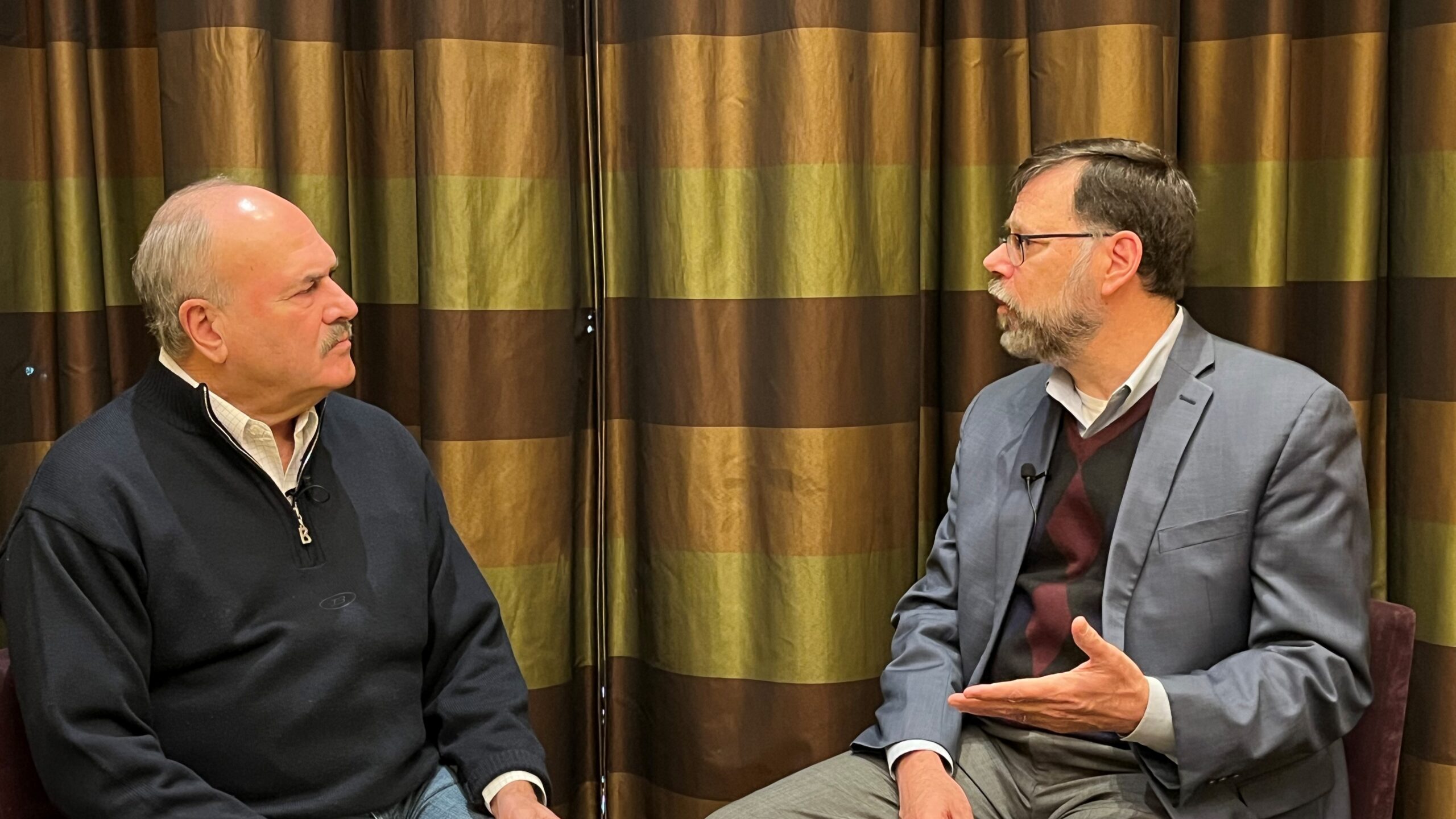
Energy and Climate
—
by

—
by

In addition to his impact in the newsroom, Coffey has also made an impact in the broader field of civic engagement and public policy. He served as vice chairman of the Newseum, a groundbreaking institution dedicated to free expression and the First Amendment, and he continues to champion journalistic integrity and education through his work as an Emeritus Board member of the Freedom Forum, the Newseum’s parent organization.
Coffey has brought his expertise to bear as a board member of Keystone Policy Center and Oxford Analytica, an international consulting firm that provides strategic analysis to governments and businesses worldwide. He has also served as a senior advisor to APCO Worldwide, a global public affairs and communications consultancy based in Washington, D.C. He has also been a member of the Council on Foreign Relations for 25 years.
Throughout his career, Shelby Coffey III has been known not only for his editorial excellence but also for his unwavering commitment to public service and informed dialogue. His contributions continue to inspire the next generation of journalists and civic leaders.

Governor Vilsack was born in Pittsburgh, Pennsylvania. An orphan, he was adopted in 1951 by Bud and Dolly Vilsack. In 1972, he received a bachelor’s degree from Hamilton College in Clinton, New York. In 1975, he earned a law degree from Albany Law School.
Although a Pittsburgh native, Governor Vilsack has had a deep connection with Iowa for decades.
He and his wife Christie, an Iowa native, were married in 1973. They have two sons, two daughters-in-law and six grandchildren. Shortly after marriage, they settled in Christie’s hometown of Mount Pleasant, Iowa.
Governor Vilsack became an active member of the local community, participating in the Chamber of Commerce and United Way. He also helped fundraise for a youth athletic facility.
When the local mayor was killed, he took charge of raising funds for a memorial. When asked by the slain mayor’s father if he would run for the seat, Governor Vilsack stepped up and led, winning the Mayor’s race in 1987 and serving until 1992 when he was elected to the Iowa Senate.
In 1998, he became the first Democrat to be elected as the Governor of Iowa in more than 30 years. During his two terms as Governor, he created an $800 million, 10-year economic development incentive program—the Iowa Values Fund. His administration worked with schools, medical providers, businesses, faith-based organizations and other entities to expand healthcare coverage to more than 90,000 previously uninsured children.
Under his leadership, first as Senator and then as Governor, he collaborated with the legislature to develop Vision Iowa, a program that resulted in a $3 billion investment in cultural, educational and recreational facilities across the state. He worked to build a sustainable energy infrastructure, proving Iowa could fuel the nation, as well as feed it.
He became the 30th and 32nd United States Secretary of Agriculture, from 2008-2017 and 2021-2025, respectively. Only five people in U.S. history have served in the Cabinet longer, and during his tenures, the United States Department of Agriculture set records for U.S. agricultural exports and provided food assistance to millions of Americans. He helped expand food and nutrition access through summer feeding programs for children and additional support for fruit and vegetable purchases through the Women, Infants and Children (WIC) program. As Secretary, he worked to develop new and superior markets for small and mid-sized farms, allowing those operations to remain viable and in turn, strengthening and growing rural communities.
Governor Vilsack has long been connected to the World Food Prize Foundation, having served on both the Council of Advisors and the Board of Directors. His insights and acumen were vital in shaping our mission and initiatives. His leadership and experience will be instrumental in expanding the Foundation’s international reach and continuing the mission of elevating innovations and inspiring action to sustainably increase the quality, quantity and availability of food for all.

Following his retirement from Monsanto Jerry was a co-founder and for 7 years as CEO of an agricultural startup, CoverCress Inc. CoverCress developed Pennycress as a winter crop, functioning like a cover crop while also producing a low Carbon Intensity feedstock for renewable diesel and SAF, and a new source of farm income. CoverCress was sold to Bayer, Bunge and Chevron in 2022.
He is a member of several companies Boards of Directors, aimed at reducing our carbon footprint. These include Albemarle Corporation (NYSE), and three venture backed ag tech startups: Pluton Biosciences, (soil microbes), NuCisor (better chickpeas), and Miruku (plant produced cheeses). He also serves as an advisor to the the Planetary Health fund of Illumina Ventures, focusing on promising new companies impacting this area.
He is a Trustee of Keystone Policy Center which convenes public, private and civic leaders to address societal issues for the environment, health policy, and education. Working with Keystone, he was a key founder of Field to Market, a diverse alliance of now over 100 entities leading companies and grower groups that span the value chain all seeking to create sustainable outcomes for agriculture.
Steiner received a B.S. degree in Agricultural Economics from the University of Wisconsin, and an MBA from Washington University. He and his family are actively involved with their Maryland community, especially focused on teen mental health and greater opportunities for underserved youth.

Prior to The Nature Conservancy, Jennifer held a series of leadership roles with Conservation International, where she notably led their work on impact finance, ultimately serving as both the COO and President in a time of exponential growth. She began her career teaching English in rural Namibia, then working in micro-finance at Women’s World Banking.
Jennifer has been named to TIME’s inaugural Climate 100 list of leaders, Forbes’ 50 over 50 for Impact and Virginia Business’ Virginia 500 Power List. She serves on a range of global councils including the Climate Advisory Board for Norges Bank Investment Management and Nestlé’s Creating Shared Value Advisory Council. She also chairs the board of Enduring Earth, an ambitious collaboration that works with stewards of the environment to accelerate conservation worldwide.
Jennifer earned her M.I.A. from Columbia University’s School of International and Public Affairs and her B.A. from Emory University. Based in Washington, D.C., with her family, Jennifer has a passion for storytelling, mentoring future leaders and spending time outdoors.

Rep. Neguse has earned national praise for his ability to effectively craft and enact legislation. In the 117th Congress, during his second-term, he introduced 103 bills — the second-most of any member in the House — and 22 of these measures ultimately became law. He received the Bipartisan Policy Center’s Legislative Action Award in 2022 for his ability to work across party lines, and in 2021 was ranked among the top 10 most effective lawmakers in Congress by the Center for Effective Lawmaking, including as the most effective for legislation on public lands. In 2020, he was recognized as the most bipartisan member of Colorado’s congressional delegation by the McCourt School of Public Policy at Georgetown University, and he received the “Spirit of Service” award from the Town Hall Project for his successful Service Town Hall initiative.
Before being elected to Congress, Rep. Neguse served in the Governor of Colorado’s Cabinet as the Executive Director of Colorado’s consumer protection agency. As one of the youngest people to serve as a state-Cabinet secretary, he achieved key victories, including the recovery of millions of dollars for consumers, investigations culminating in significant financial-fraud cases, the championing of legislation to combat financial fraud against seniors, and the launch of the state’s first online filing system for civil rights discrimination complaints.
Previously Rep. Neguse was elected to represent Colorado’s 2nd District on the University of Colorado Board of Regents, where he served a six-year term fighting to make higher education more affordable and accessible and building consensus on tough issues, including efforts to lower student health insurance costs and increase wages for the University’s lowest paid workers. He received his B.S. in Political Science and Economics from the University of Colorado-Boulder, where he graduated summa cum laude, and received his J.D. from the University of Colorado School of Law.
Over 40 years ago, Rep. Neguse’s parents immigrated to the United States from Eritrea. As hardworking immigrants and naturalized citizens, they never forgot nor took for granted the freedom and opportunities the United States gave them and their children. Their experience motivated Rep. Neguse to be an active participant in our democracy at an early age, and to give back through public service. Rep. Neguse’s public service is rooted in his firm belief that we should be expanding—not restricting—opportunities for all Americans, and he has spent his career doing the same. His priorities in Congress include lowering health care costs and prescription drug prices, raising workers’ wages, ensuring greater accountability in government, protecting our environment and treasured public lands, putting an end to gun violence, and more.
Rep. Neguse and his wife Andrea live in Lafayette, Colorado, where they are raising their two young children, Natalie and Josh.

From there, it was off to London and the legendary Fleet Street, where he chalked up newspaper bylines before doing a year of television writing for BBC and ITN.
On to New York, where he was on the foreign desk of The Herald Tribune. Later he started the first women’s liberation magazine, Women Now.
After that venture liberated all his money and no women, he went to Washington, D.C., where he became an assistant editor at The Washington Post and a leader of the Baltimore-Washington Newspaper Guild.
He founded The Energy Daily in 1973 — before the energy crisis hit — and was its publisher and editor chief until its sale, along with other King Publishing Group newsletters, in 2006.
He was awarded an honorary doctor of engineering from the Stevens Institute of Technology. In 2014, the United States Energy Association presented him with its annual United States Energy Award.
King is the creator, host and executive producer of of the long-running news and public affairs program, “White House Chronicle,” which airs nationwide on PBS and SiriusXM Radio, among other outlets, and worldwide on Voice of America Television and Radio in English and Chinese. He writes a weekly column for the InsideSources syndicate which distributes it to hundreds of newspapers.
A charity he founded in 2011, ME/CFS Alert on YouTube, produces videos that help victims of Myalgic Encephalomyelitis, commonly known as Chronic Fatigue Syndrome, educate doctors and encourage research.

In his previous role as CEO of PepsiCo Foods North America, Steven was responsible for overseeing all aspects of PepsiCo’s nearly $21 billion snack and convenient foods business in North America. This included Frito-Lay North America (FLNA) and Quaker Foods North America (QFNA), which featured iconic brands such as Lay’s, Doritos, Cheetos, Tostitos, Ruffles, Fritos, Stacy’s Pita Chips, SunChips, and Quaker Oats.
Under Steven’s leadership, Frito-Lay became the #1 growth driver in total food and led savory snack innovation in the consumer packaged goods (CPG) industry, achieving the most growth in this category from 2022 to 2024. He spearheaded PepsiCo’s expansion into plant-based and organic snacks and led strategic acquisitions, including PopCorners and Sabra, which enhanced PepsiCo’s portfolio of Positive Choices and supported our pep+ sustainability and nutrition goals.
He also led initiatives such as the rollout of compostable packaging, earning the U.S. EPA SmartWay Excellence Award, and the addition of 500 EV trucks, including the first-ever Tesla Semi, collectively reducing 143 metric tons of CO2e emissions annually.
Steven played a key role in the company being ranked as the #1 Supplier in Kantar’s PoweRanking for nine consecutive years from 2016 to 2024, showcasing PepsiCo’s leadership in strategy, branding, marketing, and supply chain management.
Earlier in his tenure at PepsiCo, Steven led the company’s global Walmart business, managing the PepsiCo portfolio of products across all aspects of the Walmart Business worldwide, including Walmart U.S., Sam’s Club, and Walmart International Divisions. In this role, he built strong strategic partnerships and delivered significant retail sales and share growth.
Beyond PepsiCo, Steven actively contributes to various organizations. He serves on the board of directors for State Farm Mutual Automobile Company, participating in audit, finance, and investment committees. He is also Campaign Chair for United Way of Metropolitan Dallas’ Annual Campaign during their Centennial year, and sits on the President’s Advisory Board for the University of Texas Southwestern Medical Center. Additionally, he is active with industry groups like the Consumer Brands Association (CBA), Food Marketing Institute (FMI), and National Retail Federation (NRF).







